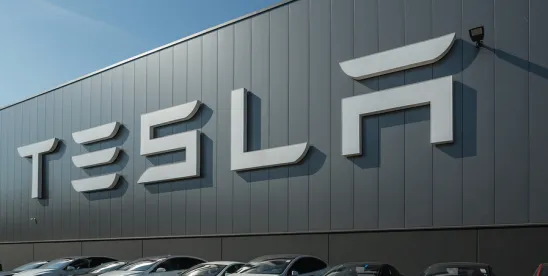In In Re Tesla Motors, Inc. Stockholder Litigation, the Delaware Chancery Court denied Defendants’ motion to dismiss an action brought by plaintiffs (Tesla stockholders) against nominal Defendant Tesla Motors in connection with Tesla’s acquisition of SolarCity Corporation. Plaintiffs alleged that Tesla’s board of directors breached their fiduciary duties by approving the acquisition of SolarCity, which benefitted SolarCity stakeholders but negatively affected Tesla stockholders. SolarCity is a public Delaware corporation founded by Elon Musk and his cousins, Peter and Lyndon Rive. Musk and his cousins sit on the SolarCity Board. Lyndon was SolarCity’s CEO and Peter was its CTO.
At the time of Tesla’s acquisition of SolarCity, Musk was Tesla’s largest stockholder, owning approximately 22.1% of Tesla’s common stock. Musk was also SolarCity’s largest stockholder, holding approximately 21.9% of the common stock prior to Tesla’s acquisition of SolarCity. As a result of Tesla’s acquisition of SolarCity, Elon Musk’s SolarCity holdings were converted to Tesla shares valued at approximately $500 million. Notwithstanding the conflicts of interest at hand, at no point did the Tesla board form a special committee to evaluate the SolarCity acquisition.
In the Complaint, Plaintiffs argue that the Acquisition was essentially a “bailout” of SolarCity that benefited certain Tesla board members and/or their family members, businesses, and business partners.
Musk persistently presented the SolarCity deal to the Tesla Board, proposing the acquisition to the Board on three separate occasions within a matter of months. After the third presentation, during which the Board focused solely on SolarCity as a potential acquisition target, the Board authorized Musk to assess a potential acquisition of a solar energy company.
Roughly three weeks later, on June 21, 2016, Tesla announced its offer to acquire SolarCity in a stock-for-stock transaction that valued SolarCity at $26.50 to $28.50 per share, a 21-30% premium to SolarCity’s closing price on June 20, 2016. Musk actively promoted the offer and lobbied investors and analysts for their support of the possible acquisition.
Due diligence revealed that SolarCity had serious liquidity issues. Specifically, SolarCity had $3.164 billion in outstanding debt, including “significant debt [that] would mature in a three-to-five year window.” Despite this, Tesla moved forward with the deal and on August 1, 2016, Tesla and SolarCity announced they had executed an Agreement and Plan of Merger.
On November 17, 2016, although not required under Delaware law, Tesla stockholders voted to approve the acquisition. Musk abstained from the vote. As a result of Tesla’s acquisition of SolarCity, Tesla’s existing debt nearly doubled.
Several lawsuits challenging the acquisition were filed in Delaware’s Chancery Court. Defendants tried to dismiss the case by relying on Corwin v. KKR Financial Holdings, which held that corporate boards are protected by the business judgment rule if the transaction was approved by a majority of stockholders. However, Corwin only applies to companies that do not have a controlling stockholder. While it is true that Musk does not own a majority of Tesla shares, plaintiffs argued that he was effectively a controlling stockholder given his position and history with Tesla, and thus Corwin does not apply.
In evaluating whether or not Musk was a controlling stockholder, the Court looked to Kahn v. Lynch Communications Systems, Inc.. In Kahn, the Supreme Court of Delaware held that Delaware courts will deem a stockholder controlling when he (1) owns more than 50% of the voting power of a corporation or (2) owns less than 50% of the voting power but “exercises control over the business affairs of the corporation.” Musk only holds 22.1% of the voting power in Tesla; thus, the question is whether Musk “exercises control over the business affairs” of Tesla. More specifically, the issue is whether Musk “exercised actual domination and control over … [the] directors.” The Chancery Court answered that question in the affirmative.
The burden was on the plaintiffs to show that it is “reasonably conceivable” that Musk controlled Tesla. In support of this assertion, the plaintiffs offered substantial evidence, including that Musk is Tesla’s visionary, CEO, and Chairman of the Board, and therefore has substantial influence over the Board, and that Musk has “strong connections” with members of the Tesla Board. Plaintiffs also note that Musk has publicly stated that Tesla is “his company.”
The Court held that the Complaint “pleads sufficient facts to support a reasonable inference that Musk exercised his influence as a controlling stockholder with respect to the acquisition.” Defendants’ motion to dismiss was denied.
In re Tesla Motors, Inc., Stockholder Litigation memorandum opinion 180328



 />i
/>i

